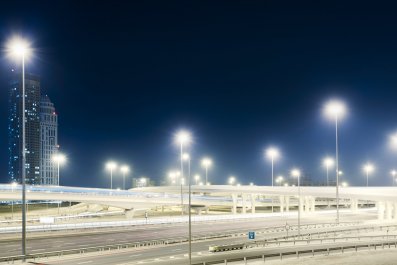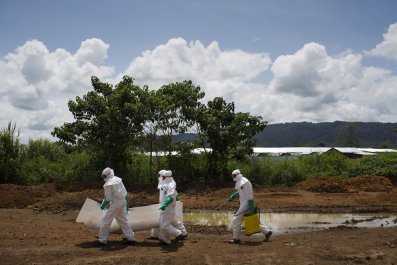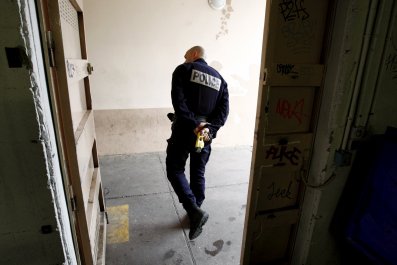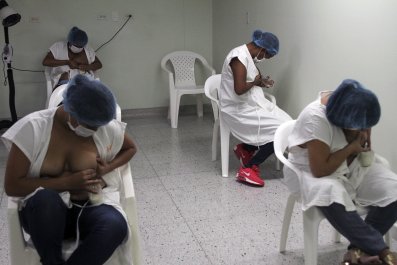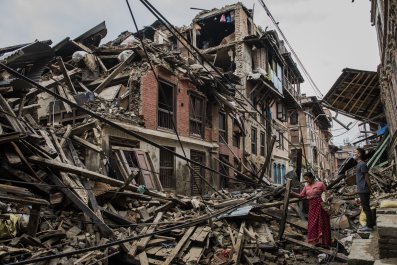Nearly three years ago next month, in the northwest corner of what was once one of the world's most closed and brutal regimes—Myanmar—the pogroms began. At the urging of a Buddhist political party, mobs began to attack people known as the Rohingya, a stateless Muslim minority of South Asian descent. Scores have been killed since, more than 1,000 homes have burned to the ground, and thousands of families fled.
The violence in the state of Rakhine, just south of Bangladesh on the Bay of Bengal, called to mind the 1990s ethnic cleansing by Slobodan Milosevic against Bosnian Muslims in the former Yugoslavia. The military regime in Myanmar—formerly known as Burma—had begun to implement political and economic reforms that drew praise from the outside world. But at the same time, it increased sectarian tensions in the Buddhist-dominated country, tensions that now are at the center of a humanitarian crisis unfolding on Southeast Asian waters. Thousands of Rohingya refugees have been floating at sea for months, with dwindling supplies of food and water, most turned away by Myanmar's neighbors Thailand, Malaysia and Indonesia.
On May 20, as international outrage increased, authorities in Indonesia and Malaysia relented. They said they would admit some 7,000 boat people "temporarily," while insisting that they would take in no more. An estimated 1.1 million Rohingya remain in Myanmar, more than 100,000 of whom are now living in camps near Sittwe, the capital of Rakhine.
Malaysia and Indonesia also insisted that the international community needed to get involved to bear some of the resettlement costs, and, however belatedly, that now appears likely. The U.S. State Department said on May 20 that it would provide financial support and was also prepared to take a leading role in a multicountry effort to hasten the resettlement of the most vulnerable migrants.
Less clear is the role Thailand will play. Its government said it would host a multinational conference on May 29 in Bangkok to help resolve the crisis, and also said it would not force boats in its territorial waters back out to sea. The world is watching the Thai response with special scrutiny, because the plight of the Rohingya is a notable embarrassment to Bangkok.
Over the past several years, thousands seeking to flee Myanmar have ended up in what amounts to slave labor camps on the border of Thailand and Malaysia. Many of the men work on local fishing vessels. Several Thai naval security officials were implicated in the slave labor rings—to the chagrin of the military government in Bangkok. And last year, Reuters—as part of a series that won a Pulitzer Prize—reported that Thai police were allowing Rohingya refugees to board boats officials knew would be picked up by human traffickers. That report triggered an investigation and led to camp closures and arrests.
Ultimate responsibility for the Rohingya plight lies in Myanmar, where the government refuses to discuss the issue with the Association of Southeast Asian Nations or anyone else. If anything, the government in Naypyitaw is fanning tensions. Earlier this year, it announced it would revoke temporary identification cards for all minorities, Rohingya included. These cards gave the Rohingya access to health and education services, and also allowed them to vote in what's expected to be a constitutional referendum later this year. The decision triggered large protests by Buddhist groups, and the government backed off.
Then, in April, it pressed the issue even further, by stepping up collection of the cards from those who held them. (Other minorities—those of Indian and Chinese descent, for example—also hold such white cards.) Some 50,000 cards had been seized by the end of April in Rakhine, and there is no indication that the government intends to cease the collections. That has stoked tensions, diplomats and nongovernmental organizations working in the country have said.
In an email to Newsweek, an East Asian diplomat said on May 21, "I worry that the refugee crisis that finally has the world's attention now might only be the first of many. More violence is possible. It's not clear how this will be defused. The Rohingya are without hope here, and that's a dangerous place to be. We've not heard the last of this."





